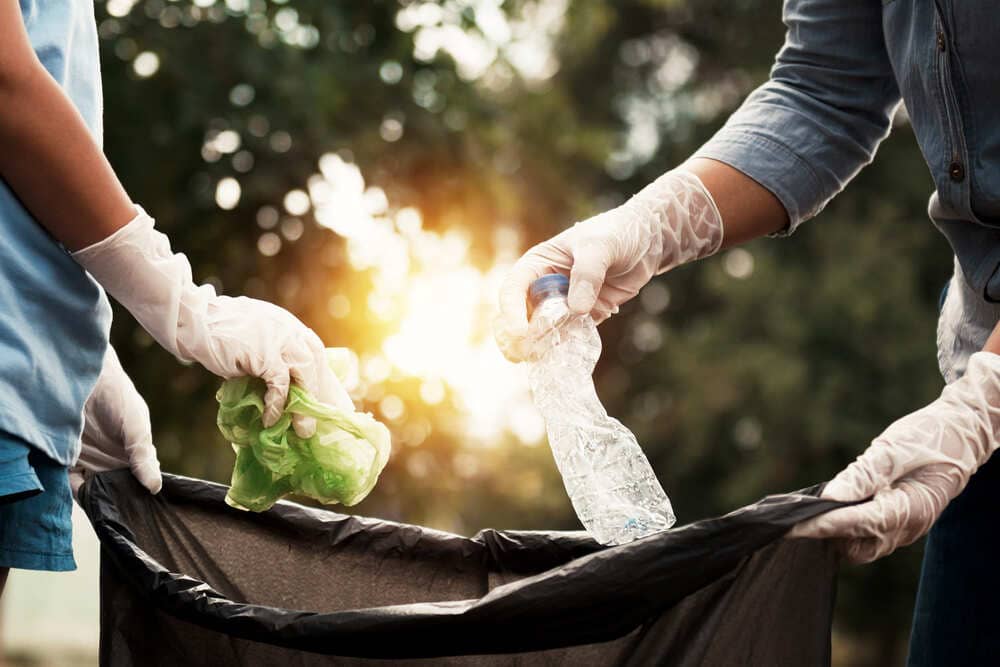-
Despite countless attempts to educate consumers about proper waste management, recycling, and the transition to sustainable materials, our contemporary society that focuses on production and consumption still generates enormous volumes of sewage and garbage caused by human activities. As the population of the globe continues to rise, the dissemination of information on waste management or food waste may not reach all areas. We, humans, are inflicting devastation on the world at an alarming pace, despite several warnings from experts. It is thus interesting to see if each generation’s perspectives, attitudes, and behaviours differ. The most important question is: are we aware of the problems connected with ineffective waste management?
Interesting information from Recycle Magazine reveals that even when retirement age, the UK’s older people enjoy respectable economic prosperity. This affords the elderly more spending power and more time than ever before. Their study shows that the amount of garbage produced in communities with older people is noticeably more significant than in other communities; this may be attributed to various factors. One stems from the opportunity to shop, which means older people may inadvertently generate more garbage after retirement.
In contrast to the above situation, another example is Hong Kong, which also has a significantly ageing population. However, the government does not provide the elderly with sufficient assistance in waste management knowledge. Many elderly Hong Kong people are impoverished and without savings or a pension. Many must earn a living off trash and recycling, for instance, by selling cardboard on the side of the road. But this tends to indicate that even the elderly, who may have a limited income, recognize the career and environmental benefits of leftovers and are more conscious about waste management than those with higher incomes.1
Several studies have been conducted in Thailand on community-based waste management for the elderly. Most of them are practical research studies or examinations of existing situations, as well as local reactions or efforts to maintain a clean neighbourhood. One of them is research by Wisakha Phuchinda and Pharon Wongchan, which focused on environmental management issues in a sub-district administrative organization with the aim of raising awareness at the community level of the elderly in Thai society. They discovered that the primary environmental problem is the accumulation of solid waste along roads and pathways produced by individuals who use the services of various community organizations. Their analysis reveals that the subdistrict administrative organization requires the necessary people to maintain their property and that there are further problems with litter and unattractive views. There are not enough garbage collection trucks to fulfil demand; no efficient trash collection and disposal system; no separation and management of solid, infectious, and hazardous waste; and the budget is insufficient. The fundamental cause of these problems is a lack of understanding and understanding about trash separation and proper management.2

Their chosen case study on the management of community environmental issues demonstrates the need for environmental protection and waste management education courses for personnel, the elderly, and the general public. Campaigns for household waste management can be upheld according to the 3R principle: “Reduce” by reducing unnecessary resource consumption; “Reuse” by reusing resources most cost-effectively; and “Recycle” by taking things that cannot be used in their original form and transforming them into something new.
After learning the waste management process and experiencing the advantages of waste management, the study demonstrates that the elderly are responsible for setting an example for their children and passing on the knowledge presented in several locations. In addition, older people actively participate in trash management by, for instance, creating items from waste materials to generate revenue for the subdistrict administrative organization. Other initiatives include turning trash into merit, building a waste bank, and planting trees to encourage the elderly to socialize and engage in group activities. This approach empowers the elderly’s participation as waste management planners.
Another way to include the elderly in solid waste management is the annual “Clean Province” contest, which is held nationally every year. It is an activity conducted by the Department of the Interior in conjunction with local government entities, towns, and communities.3 The project’s primary purpose is to expedite the implementation of a comprehensive waste management system, which includes:
(1) Management from the “origin” of waste through network development by “local volunteers to save the planet” and expansion of the outcome so that every family has a wet garbage bin.
(2) “Middle-way” management by cooperating with local government organizations to establish separate waste bins in public areas, including all tourist sites, and a comprehensive garbage pickup system in all regions. It intends to eliminate hazardous waste and provide a pickup station for infectious waste in compliance with preventive measures during the coronavirus crisis.
(3) Management at the “destination” by cooperating with local government organizations to manage community solid waste to minimize hazardous waste input based on academic principles and avoid infectious waste remaining in the community.Waste management in Lopburi Province is an example of an innovative approach in this project.4 The province’s project conclusion was revealed to have two fascinating outcomes. (1) The local administrative body may broaden its efforts to raise awareness by organizing meetings, training, seminars, and community radio. They have been used to explain the waste issue and give knowledge and expertise on source waste management and reuse. (2) Waste-related activities were also designed to encourage students, youth, and the general public, especially the elderly, to participate in environmental conservation and responsibility.
The following success factors characterize community waste management in Lopburi Province: (1) participation by a provincial committee comprised of the public sector, the private sector, and the civil society sector to promote waste management in the province; (2) encouragement of lessons learned and community wisdom, including learning exchanges with neighbouring communities; (3) development of other forms of community waste management, such as recycling waste banks, community welfare, and waste sorting; (4) solid waste processing and re-using the leftovers; (5) building community enterprises by joining a group of community members to produce compost and microbial water products from organic waste. Implementing “Clean Province” management has yielded a satisfactory result: a clean and pleasant environment along main routes, residential streets, and attractive tourist destinations. This resulted from people working together to keep the front of their houses and neighbourhood nice and tidy. Public participation, networking, and ongoing follow-up at all levels are critical to their success.
In addition, the recipe for the success of the project is the operational structure that enables the people’s sector to join the working group and play a co-hosting role. House + Temple + Government + Network is a model for involvement in the administration of clean provinces. In other words, the house is designed for household members to manage source waste. The temple serves as the venue for all government functions, supporting and hosting the activities of the people. The network is a partnership between public and private entities.
Another Thai research study demonstrating the engagement of the elderly in community waste management is the work of Wisakha Phuchinda and her colleagues. They seek to provide recommendations for enhancing learning and increasing the efficiency of community environmental sanitation.5 It shows the engagement of the elderly in rural parts of central Thailand and establishing a structure for collaboration among waste management organizations. This study involved participatory action research with a sample group of rural local government organizations from 19 central provinces. The study team chose six communities with potential for action on elderly care for group discussions with 30 participants per community to increase waste management awareness.

Local governments and community leaders worked together to organize trash management and design and production operations centred on the reuse and recycling of municipal garbage. Using a participatory approach, they create a learning network with other communities before producing lessons learned and analyzing knowledge development. The research team has created a guide for the elderly to handle community garbage in order to make extra value, which will be distributed and tested in two more rural communities. In conclusion, it is shown that the operations of the sample local government organizations may be conducted with sufficient tools and funds to practice and enhance knowledge and promote the participation of the elderly in waste management.
When the elderly are trained in waste management, they better understand trash separation and become more conscious of the current waste issue. Therefore, the elderly may share their experiences of trash separation with their children and neighbours. The elderly are also interested in jobs involving trash to create and develop vintage objects and waste recycling for product development, which promotes hobbies, provides income and fosters self-esteem and community.
The aforementioned actions and research conducted by government and academic organizations in Thailand demonstrate the promotion of waste management at the local and national levels. They also show that Thailand is aware of the environmental problems that will have a lasting impact on the older population. However, information about the use of these activities and education may continue to be limited. The elderly, who are aware of the issues and participate in the aforementioned educational programmes, may constitute just a tiny share of the country’s ageing population. The key topics include how to promote research outputs and activities that incorporate participation from all of the above-mentioned sectors, as well as how to share this information with other older people who are not members of the model community or were not initially selected for the project. Although several programs aim to enable the elderly to serve as informational conduits for other members of society, their effectiveness may be limited. The public media must be actively involved in recording and presenting the previously described efforts in order to spread the results of the activities to a larger audience.
By Editorial team
Published on July 24, 2022References
- Acorn. (2019). Waste management and the elderly: A neglected problem? https://www.recycling-magazine.com/2019/07/03/waste-management-and-the-elderly-a-neglected-problem/
- Phoochinda, Wisakha and Paron Vongchan. (2018). Opinion of elderly on environmental management for elderly by sub-district local administrative organization. Prince of Songkla University Journal (Social Sciences and Humanities), 24(1), 103-148. https://so05.tci-thaijo.org/index.php/psujssh/article/download/127912/97049
- The Minister orders governors across the country to drive a community waste management action plan, “Clean Province”, for 2022, aiming for every community to separate waste and dispose of waste properly for a clean and beautiful city. https://www.thaigov.go.th/news/contents/details/54519
- Lessons learnt from the provinces with outstanding performance in the community waste management contest “Clean Province” at the national level for 2018. http://www.stabundamrong.go.th/web/Best_Practice/best19.pdf
- Phoochinda, Wisakha, Sirivimon Saywech, Walanna Wattanahemmakorn, and Sirisuda Nootimthong. (2019). Guidelines for the development of learning and improving the efficiency of community waste management through the participation of the elderly in rural areas in central Thailand. https://kb.hsri.or.th/dspace/handle/11228/5048?locale-attribute=th
